
 Flash News
Flash News
Video/ Revolt in Corfu prison, Albanians and Georgians set fire to cells
Accident at "Shkalla e Tujanit" in Tirana, a car overturns after the collision
KPA dismisses Tirana judge Ardiana Bera from office
Don't lose face/ After Rama's 'threat', SP candidates withdraw request from CEC
VIDEO/ The assassination in Durrës, the moment of the murder of 29-year-old Ermir Dedja
BBC on Italy's first woman prime minister: A far-right government will alarm most of Europe

Far-right leader Giorgia Meloni has claimed victory in Italy's election and is on track to become the country's first female prime minister.
Ms Meloni is widely expected to form Italy's most right-wing government since World War II.
This will alarm much of Europe as Italy is the EU's third largest economy.
However, speaking after the vote, Ms Meloni said her 'Brothers of Italy' party would "govern for all" and would not betray people's trust.
"Italians have sent a clear message in favor of a right-wing government led by the Brothers of Italy," she told reporters in Rome, holding up a sign reading "Thank you Italy".
Meloni's right-wing alliance - which also includes Matteo Salvini's far-right League and former prime minister Silvio Berlusconi's centre-right Forza Italia - will take control of the Senate and Chamber of Deputies, with around 44% of the vote .
Four years ago, the Brothers of Italy won just over 4% of the vote, but this time they benefited from staying out of the national unity government that fell in July.
Giorgia Meloni looks certain to become prime minister, but President Sergio Mattarella will nominate her and that is unlikely to happen before the end of October.
Although she has worked hard to soften her image, stressing her support for Ukraine and toning down anti-EU rhetoric, she leads a party rooted in a post-war movement that rose from dictator Benito Mussolini's fascists.
Italy is a founding member of the European Union and a member of NATO, and Ms Meloni's pro-EU rhetoric places her alongside Hungary's nationalist leader Viktor Orban.
Its allies have both had close ties to Russia. Berlusconi, 85, claimed last week that Vladimir Putin had been pushed to invade Ukraine, while Salvini has questioned Western sanctions against Moscow.
Ms Meloni wants to review Italian reforms agreed with the EU in return for almost 200 billion euros (£178 billion) in grants and loans for the post-Covid recovery, arguing that the energy crisis has changed the situation. BBC
Latest news




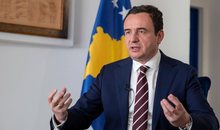


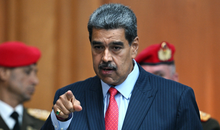
38 people arrested for conspiracy in Venezuela, among them an Albanian
2025-05-20 21:18:15

Torrential rainfall hits southeastern France, 3 confirmed victims
2025-05-20 20:49:14

Shehaj: Our votes will never unite with Edi Rama
2025-05-20 20:24:31
The ship "Butrinti" rescues 13 migrants in the Aegean Sea, including 2 children
2025-05-20 20:01:12
Video/ Revolt in Corfu prison, Albanians and Georgians set fire to cells
2025-05-20 19:51:04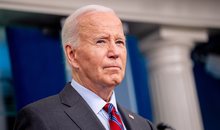
Biden diagnosed with cancer, questions about his health in the White House
2025-05-20 19:37:01
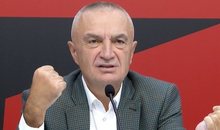


How SP candidates withdrew from vote complaints after Rama's message
2025-05-20 18:34:12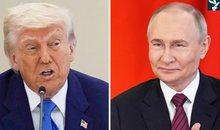
Trump-Putin conversation/ Analysis: Who won in the two-hour call?
2025-05-20 18:15:00
Suspicions of electoral crimes, SPAK checks the municipality of Klos
2025-05-20 18:02:48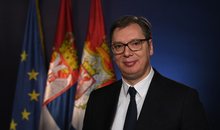
Vucic message to the Serbian coach: Go to Tirana and win against Albania
2025-05-20 17:50:48
Këlliçi: The diaspora vote is a massacre, the violations are flagrant
2025-05-20 17:39:37
Accused of drug trafficking in Italy, the Supreme Court acquits Kreshnik Farruku
2025-05-20 17:20:53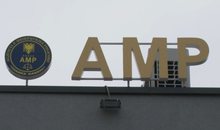
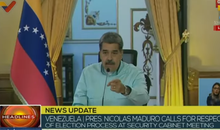
Venezuelan President: Ecuador's Albanian Mafia seeks to sabotage our elections
2025-05-20 17:01:14
Accident at "Shkalla e Tujanit" in Tirana, a car overturns after the collision
2025-05-20 16:51:18
Diaspora vote, Source: Process more symbolic than with real impact
2025-05-20 16:41:12
Why Careful Reporting on Tragic Cases Is Important
2025-05-20 16:17:12
KPA dismisses Tirana judge Ardiana Bera from office
2025-05-20 16:13:30
Even young people with hypertension, 35% of 18-year-olds with blood pressure
2025-05-20 16:01:07

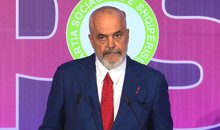
Enigma/ How did the SP grow more than in the previous elections this year?
2025-05-20 15:12:50
Threat against President Osmani, KMDLNJ: Risk to security and democracy
2025-05-20 15:01:56
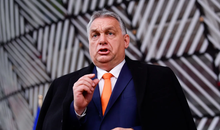
Hungary's parliament approves withdrawal from the International Criminal Court
2025-05-20 14:50:00
Defamation lawsuit against Albana Vokshi, hearing postponed at the GJKKO
2025-05-20 14:36:20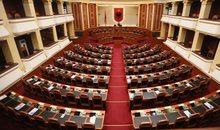
Names/Who are the 140 MPs who will sit in the Assembly?
2025-05-20 14:21:57
Why don't young people want to get married anymore?
2025-05-20 14:15:27
EU approves new sanctions against Russia
2025-05-20 13:49:54
Flax seeds, positive and negative effects of their consumption
2025-05-20 13:45:54

Pope Leo XIV's house goes up for auction for $250,000
2025-05-20 13:23:49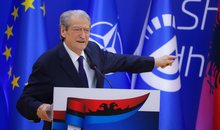
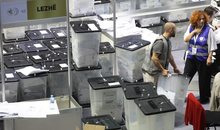
Don't lose face/ After Rama's 'threat', SP candidates withdraw request from CEC
2025-05-20 13:02:09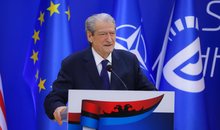
Berisha warns Rama: You will not stay in power with this farce
2025-05-20 12:55:00



RTSH's official website hacked, fake news about Kosovo appears
2025-05-20 12:10:17

Accident in Korça, motorcycle collides with car, 45-year-old injured
2025-05-20 11:44:48
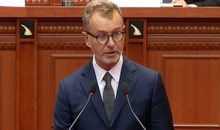

Germany/ 46-year-old Albanian injures three people, including an 11-year-old
2025-05-20 11:12:01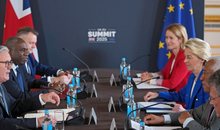
What does the agreement between Britain and the EU contain?
2025-05-20 11:01:38


Kosovo bans chicken imports from Brazil
2025-05-20 10:33:45
Makinën plot me d*ogë, vihen në pranga dy persona në aksin “Mamurras-Kashar”
2025-05-20 10:23:33
How does speaking multiple languages change the brain?
2025-05-20 10:15:05
Photo/ This is the 29-year-old who was executed in Durrës
2025-05-20 10:00:39
Foreign exchange/ How much foreign currencies are bought and sold today
2025-05-20 09:51:04




Discover the main signs that indicate your body lacks vitamin D
2025-05-20 09:06:39

Horoscope, what do the stars have in store for you today?
2025-05-20 08:50:06

He was executed by masked men, who is the 29-year-old who was killed in Durrës?
2025-05-20 08:28:21
Assassinations in Durres, 29-year-old executed
2025-05-20 08:14:59
Clear skies and light clouds, this is the weather forecast for Tuesday
2025-05-20 08:05:40
Posta e mëngjesit/ Me 2 rreshta: Çfarë pati rëndësi dje në Shqipëri
2025-05-20 07:50:55
"We broke a myth", Shabani: The Shehaj-Lapaj debate also harmed us
2025-05-19 22:59:18

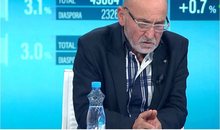


Shkullaku: With the vote of the diaspora, a slaughterhouse has been created
2025-05-19 21:46:19
CEC orders recount in 2 polling centers in Elbasan and Durrës
2025-05-19 21:33:47

250 euros a night for virtual clients, online prostitution discovered
2025-05-19 21:17:10
Yrshek, 15-year-old hits and kills an elderly man
2025-05-19 21:07:05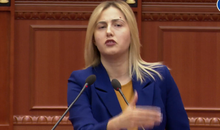

Adoption in Albania: The system that "holds" abandoned children hostage
2025-05-19 20:52:27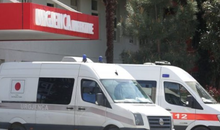
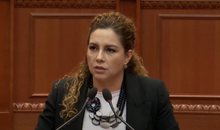
Counting for preferential vote in Tirana ends, Xhaçka receives mandate
2025-05-19 20:23:22
Kosovo President Vjosa Osmani receives death threat
2025-05-19 19:47:49



Safet Gjici's release, lawyer: Today the true face of justice was seen
2025-05-19 19:02:46
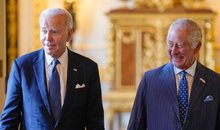
King Charles writes to Biden after being diagnosed with cancer
2025-05-19 18:34:07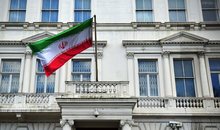

Ceasefire in Ukraine, Trump holds phone conversation with Putin
2025-05-19 18:24:47
